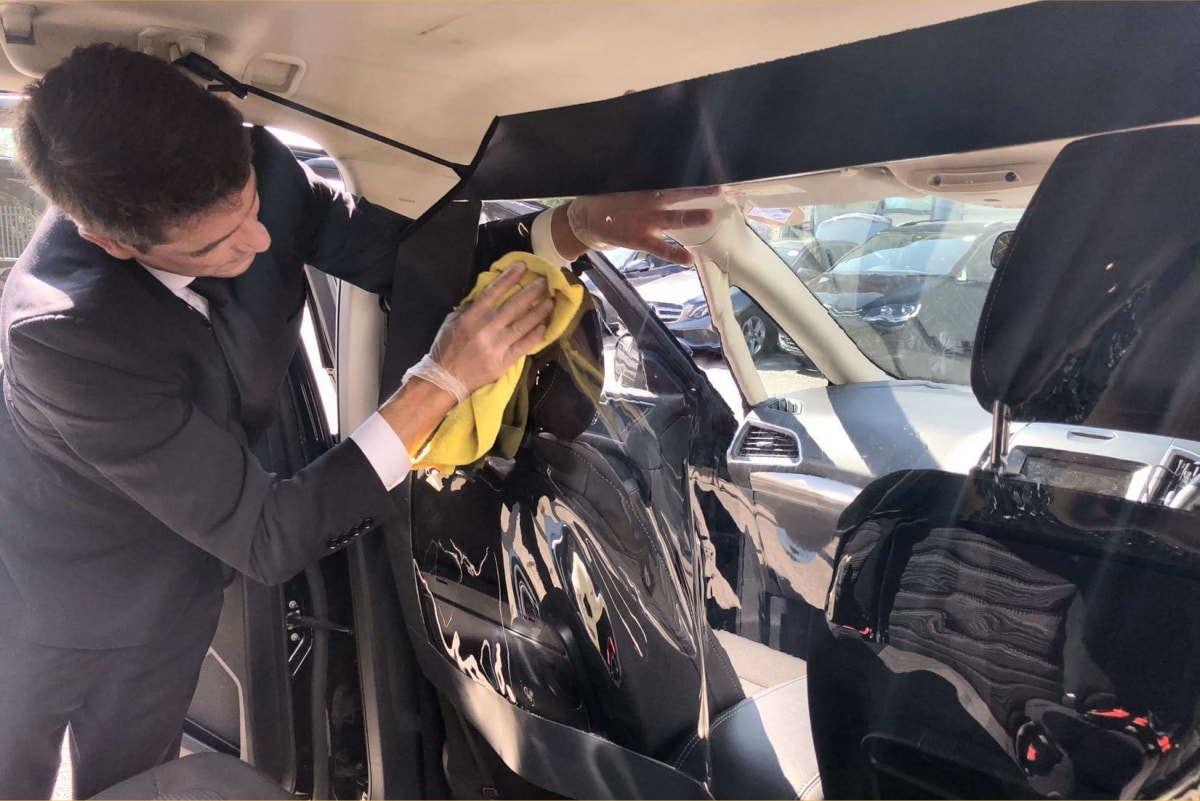Addison Lee will keep in-cab safety screens until Summer 2022

Addison Lee will keep partition screens between drivers and passengers in its vehicles until at least summer 2022. The announcement comes as the Government announces the removal of most restrictions imposed during the Covid-19 pandemic, despite a sharp rise in infections in recent weeks.
The installation of partition screens into Addison Lee’s fleet of 4,000 vehicles began in May 2020, and was seen as a vital safety measure alongside protective equipment for drivers and electrostatic antimicrobial vehicle cleanses, designed to help stop the spread of coronavirus.
The firm, which completed its acquisition of taxi operator ComCab earlier this month, also offers safety screens across the 2,500 ComCab taxis operating in London.
Addison Lee CEO Liam Griffin said: “The safety of our passengers and drivers has, and always will be, our number one priority. With restrictions lifting in London, we will continue to lead the industry in hygiene and safety and do all we can to ensure that Londoners have access to clean and safe transport options.
“Our partition screens have protected thousands of passengers and drivers over the course of the pandemic. We will continue to play our part in helping them to feel as safe as possible when they travel.”
In line with the Mayor of London’s decision to keep mask wearing compulsory across public transport, the company will also expect both drivers and passengers to wear face masks when travelling in their vehicles.
Griffin continued: “As London gets moving again, it is important that the transport network works together to keep the public safe and prevent further spread of the virus. In particular, it is vital that all London transport providers give passengers clear and consistent guidance before travelling and find ways to go above and beyond to protect the health of both their staff and the public.
He concluded: “The past eighteen months have shown us that private hire and taxi services have a critical role to play in helping to tackle transmission rates and improving public confidence.”


